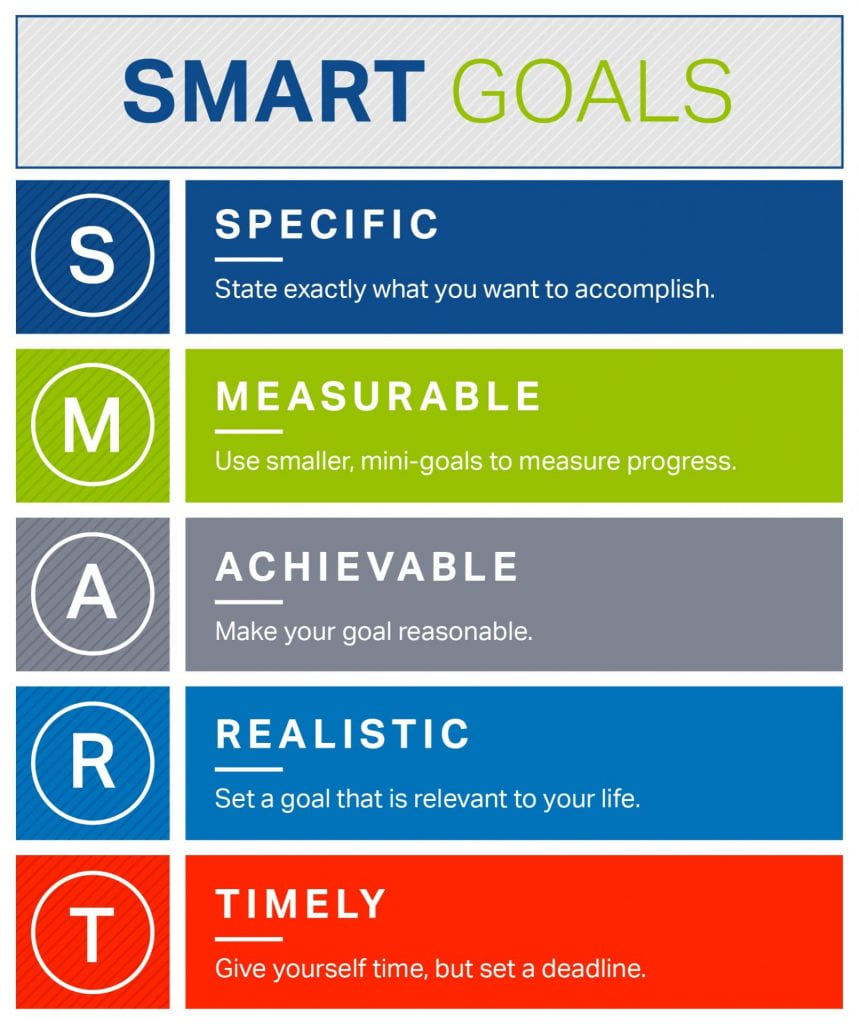
Setting SMART Goals for Optimal Productivity

Setting SMART Goals for Optimal Productivity: A Comprehensive Guide
In today's fast-paced world, we are constantly bombarded with tasks, deadlines, and expectations. It's easy to feel overwhelmed and lose sight of what truly matters. This is where setting SMART goals comes in.
SMART goals are not just a buzzword; they are a powerful framework that can help you achieve your desired outcomes, boost your productivity, and unlock your full potential. By following the SMART framework, you can transform your aspirations into actionable steps and maximize your chances of success.
What are SMART Goals?
SMART is an acronym that stands for:
- Specific: Your goals should be clear, well-defined, and leave no room for ambiguity.
- Measurable: You should be able to track your progress towards your goals and determine whether you are on the right track.
- Attainable: Your goals should be challenging yet realistic. They should inspire you, not discourage you.
- Relevant: Your goals should align with your values, interests, and overall objectives. They should be something you are truly passionate about.
- Time-bound: Your goals should have a clear deadline. This creates a sense of urgency and helps you stay focused.
The Power of SMART Goals
Setting SMART goals offers a plethora of benefits for both individuals and organizations:
- Increased Productivity: By focusing on specific and measurable goals, you can prioritize tasks and allocate your time effectively. This leads to better organization and increased efficiency.
- Improved Motivation: When you have clear goals and a plan to achieve them, you are more likely to stay motivated and driven. Seeing your progress towards your goals can be a powerful motivator.
- Enhanced Focus: SMART goals help you stay focused on what truly matters. They act as a compass, guiding you towards your desired outcomes.
- Improved Decision-Making: When you have a clear understanding of your goals, you are better equipped to make informed decisions that align with your overall objectives.
- Increased Accountability: By setting time-bound goals, you create a sense of accountability and responsibility. You are more likely to take action when you know you have a deadline to meet.
How to Set SMART Goals
Setting SMART goals is a systematic process that involves several steps:
- Identify Your Desired Outcomes: Start by identifying your ultimate goals. What do you want to achieve? What are your aspirations? This step is about understanding your big-picture vision.
- Break Down Your Goals: Once you have identified your overall goals, break them down into smaller, more manageable sub-goals. This makes your goals seem less daunting and more achievable.
- Make Your Goals SMART: Use the SMART criteria to refine your goals. Make them specific, measurable, attainable, relevant, and time-bound.
- Write Down Your Goals: Writing down your goals makes them more tangible and real. It also serves as a visual reminder of your commitment.
- Develop an Action Plan: Create a detailed action plan that outlines the steps you need to take to achieve your goals. Include deadlines, resources, and potential obstacles.
- Track Your Progress: Regularly track your progress towards your goals. Use a planner, calendar, or a goal-tracking app to monitor your achievements and identify areas where you need to adjust your strategy.
- Celebrate Your Wins: Acknowledge and celebrate your successes, no matter how small. This will help you stay motivated and reinforce your commitment to achieving your goals.
Examples of SMART Goals:
Here are some examples of SMART goals in different areas of life:
- Career: "I will get promoted to a senior management position within the next 18 months by increasing my sales by 15% and completing two relevant certifications."
- Fitness: "I will lose 10 pounds of body fat within the next 3 months by exercising 4 days a week and following a healthy diet plan."
- Finance: "I will save $5,000 by the end of the year by reducing my monthly expenses by $200 and investing $100 per month."
- Personal Development: "I will learn to play the guitar by the end of the year by practicing for 30 minutes every day and attending 1 weekly lesson."
Conclusion
Setting SMART goals is an essential skill for anyone who wants to live a more productive and fulfilling life. By using the SMART framework, you can transform your aspirations into achievable outcomes and unlock your full potential. Embrace the power of SMART goals, and watch your productivity soar to new heights. Remember, achieving greatness starts with setting clear, actionable goals and relentlessly pursuing them with determination and focus.

Here’s more about the topic discussed above:
Setting SMART Goals for Optimal Productivity: A Guide to Achieving Your Dreams
In a world overflowing with information and demands, achieving your goals can feel like an uphill battle. The key to navigating this complex landscape lies in setting SMART goals: Specific, Measurable, Achievable, Relevant, and Time-bound. This structured approach transforms vague aspirations into tangible steps, propelling you towards peak productivity and success.
1. Specific: Define Your Target
A specific goal is like a well-defined destination on a map. It leaves no room for ambiguity and ensures clarity in your intentions.
- Instead of: "I want to be healthier."
- Say: "I will walk for 30 minutes, 5 days a week."
2. Measurable: Track Your Progress
Measuring progress is essential for staying motivated and understanding your growth.
- Instead of: "I want to learn a new language."
- Say: "I will learn 10 new words in Spanish every day, and I will be able to hold a basic conversation after 3 months."
3. Achievable: Set Realistic Expectations
Setting achievable goals fosters a sense of accomplishment and keeps you engaged. Avoid overwhelming yourself with unrealistic targets.
- Instead of: "I will write a novel in a month."
- Say: "I will write 1,000 words of my novel every week for 4 weeks."
4. Relevant: Align With Your Values and Aspirations
Your goals should align with your personal values and aspirations. They should be meaningful and contribute to your overall sense of purpose.
- Instead of: "I will buy a new car."
- Say: "I will save $500 every month for a year to purchase a used car that will help me achieve my dream of traveling across the country."
5. Time-bound: Set Clear Deadlines
Deadlines create a sense of urgency and help you prioritize tasks. They ensure you stay focused and on track.
- Instead of: "I will finish this project soon."
- Say: "I will complete this project by the end of the week."
Turning SMART Goals into Action
Once you have defined your SMART goals, it's crucial to develop an action plan to achieve them.
- Break down large goals into smaller steps. This makes the task feel less daunting and creates a sense of progress.
- Create a timeline. Assign deadlines for each step, ensuring that you stay on track.
- Identify resources. Determine what you need to achieve your goals, whether it's time, money, equipment, or knowledge.
- Monitor your progress. Regularly track your progress and make adjustments as needed. Celebrate your achievements and learn from setbacks.
- Seek support. Share your goals with friends, family, or colleagues for encouragement and accountability.
The Power of SMART Goals
Setting SMART goals offers numerous benefits, including:
- Increased productivity: Clarity and focus lead to efficient task completion.
- Enhanced motivation: Measuring progress and celebrating achievements fuel your drive.
- Improved decision-making: Goals guide your choices and prioritize actions.
- Enhanced self-awareness: Setting goals encourages reflection on your aspirations and values.
Examples of SMART Goals:
- Career: "I will apply for 5 new job positions within the next month and secure at least one interview."
- Fitness: "I will lose 10 pounds by joining a gym and exercising 3 times a week for 45 minutes."
- Finance: "I will save $1,000 by budgeting my expenses and cutting back on unnecessary spending."
- Personal Development: "I will learn a new skill by taking an online course for 30 minutes each day for 3 months."
Conclusion:
Setting SMART goals is a powerful tool for maximizing productivity and achieving your goals. By focusing on clear, measurable, achievable, relevant, and time-bound objectives, you can transform your aspirations into concrete actions, leading you towards a fulfilling and successful life. Embrace the SMART goal framework and unlock your potential for growth and accomplishment.
